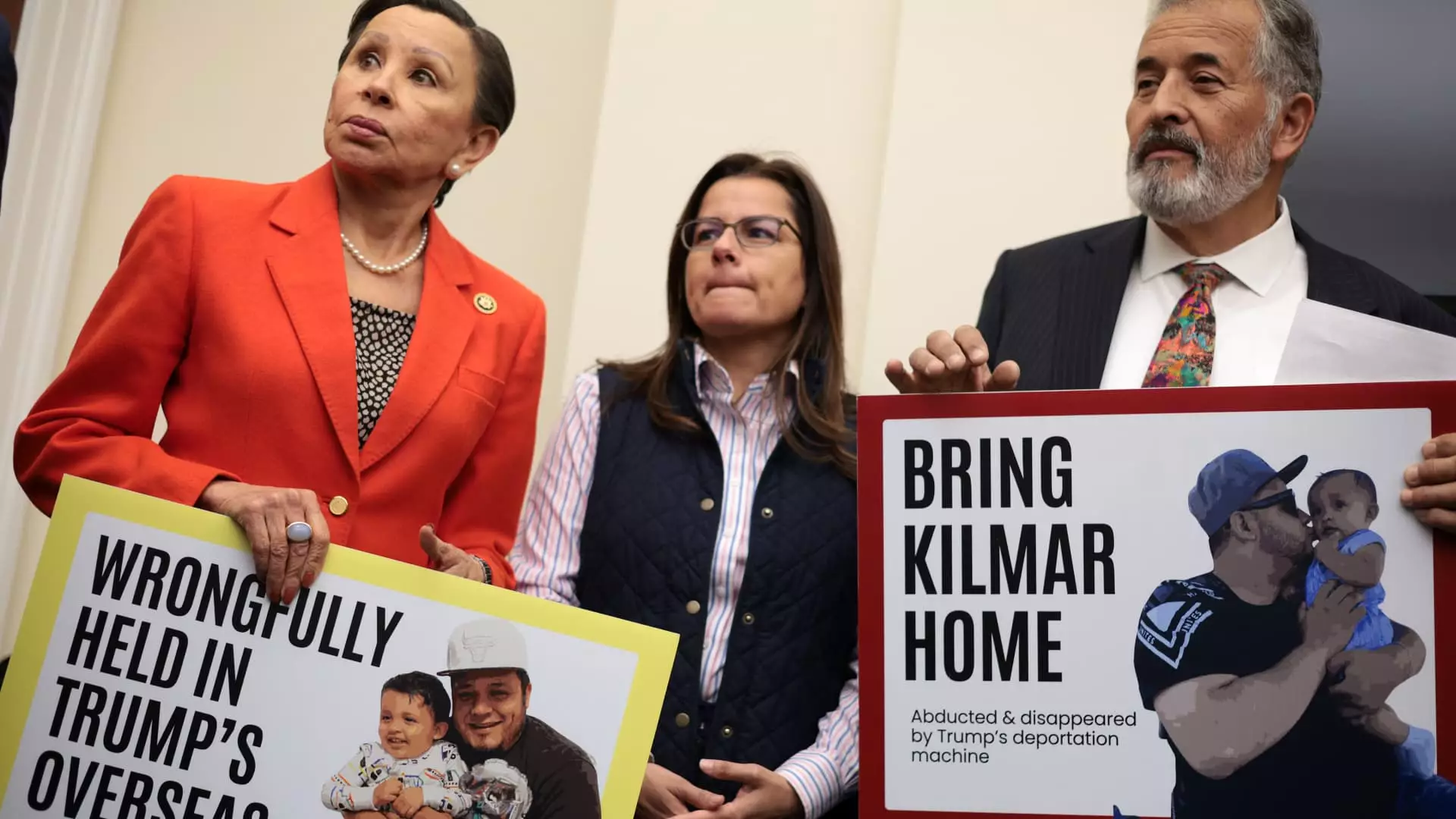In an unsettling manifestation of government overreach and judiciary defiance, the case of Kilmar Abrego Garcia shines a glaring spotlight on the vulnerabilities of the American legal system. A U.S. District Judge, Paula Xinis, recently held a hearing that revealed the lackadaisical approach of the Trump administration to comply with a court order concerning the wrongful deportation of Abrego Garcia to El Salvador. Abrego Garcia’s plight isn’t just an individual tragedy; it embodies a systemic issue that threatens to erode the very foundations of American democracy. Under the auspices of foreign policy and national security, the administration appears willing to trample over judicial rulings, undermining the checks and balances that are the hallmark of our republic.
The Preface of Disobedience
At the heart of Judge Xinis’ hearing lies the troubling assertion that the Trump administration may have defied a court order. With calls for transparency, the judge demanded that government officials provide documentation and testify under oath regarding their actions—or lack thereof—in facilitating Abrego Garcia’s return. Instead of taking this mandate seriously, officials responded with vague interpretations of legal obligations, leading to more questions than answers. This half-hearted compliance not only disrespects the authority of the judiciary but also signals a broader contempt for the rule of law. Xinis’ words drilled to the core of the issue as she lamented, “To date, what the record shows is that nothing has been done. Nothing.”
The Perils of Executive Overreach
This case exemplifies a pervasive crisis: the normalization of executive overreach. The Trump administration’s positioning—particularly in regard to their handling of immigration and race relations—displays a willingness to bypass judicial authority when convenient. By turning immigration enforcement into a politicized tool, the administration seems to discard the necessary legal frameworks designed to protect individual rights. Abrego Garcia was not merely an immigration statistic; he was a man with hopes and a family, wrongfully uprooted from his life due to the government’s flippant approach to complex legal issues under the banner of national security.
Compounding the situation is the tendency of the Trump administration to portray the judiciary as an adversary—a tactic that undermines public trust in a system designed to ensure justice. In a statement that reeks of intimidation, Trump suggested that noncompliance with his mandates would result in punitive measures, a direct attack on institutions meant to serve as bulwarks against tyranny. This hostility towards judicial oversight poses a grave risk to American democracy.
A History of Political Gamesmanship
Abrego Garcia’s case serves as a troubling representation of broader political gamesmanship. The intertwining of foreign policy and domestic rights—especially as they relate to immigration enforcement—has created a minefield of moral ambiguity. With each decision, the administration not only impacts the lives of individuals like Abrego Garcia but also sets dangerous precedents for future policies. The refusal to advocate for his return, despite judicial encouragement, projects a willingness to play political chess at the expense of a man’s basic rights and dignity.
On another front, the recent threats aimed at universities reflecting higher antennas of dissent raise compelling questions about the delicate fabric of academic freedom in America. By punishing institutions that dare to oppose or question his rhetoric, Trump seems intent on stifling free thought in a nation that was built on dissent. The coercive stance against Harvard University regarding its policies on pro-Palestinian protests exemplifies an ongoing trend of leveraging governmental power against institutions meant to uphold democratic principles.
Expressing Solidarity and Seeking Justice
In the backdrop of this unfolding crisis, voices of dissent resonate. Advocacy exists not only in the courts but also through the public mobilization of citizens concerned about the erosion of judicial authority. The recent actions by U.S. Senator Chris Van Hollen, who planned to visit El Salvador to check on Abrego Garcia’s wellbeing, serve as a reminder that amidst governmental ambiguity, there remains a committed grassroots movement advocating for justice. It is a testament to the idea that political accountability can and should emerge from the public sphere, particularly at a moment when the government shows a blatant disregard for due process.
Each of these developments screams for heightened awareness and action. The chilling reality presented in Abrego Garcia’s wrongful deportation illuminates a narrative that could define a generation—one in which the safeguards of our democracy, namely the judiciary, are threatened by political machinations. The desire to seek justice is intertwined with the need to uphold the rule of law, making the implications of this case critical not only to Abrego Garcia himself but to the principles that govern the American ethos.


Leave a Reply